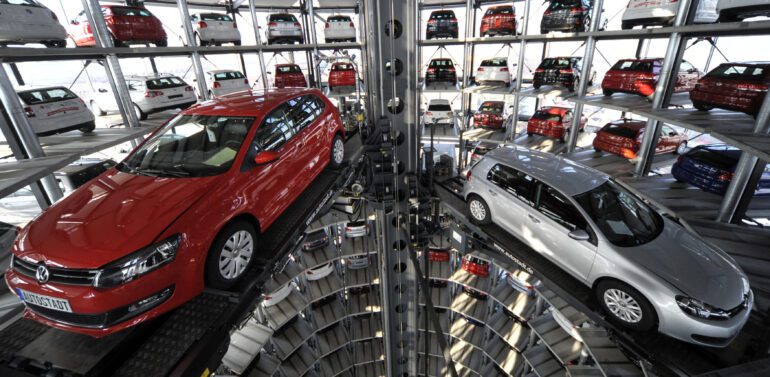TL;DR:
- Google responds to competition objections in Germany regarding its bundling of services through Google Automotive Services (GAS).
- The Federal Cartel Office (FCO) raised concerns over Google Maps, Google Play, and Google Assistant bundling, as well as ad revenue sharing restrictions.
- Google proposes remedies, including unbundling services, offering new products, and removing contractual restrictions.
- The FCO will conduct market tests to assess the effectiveness of Google’s proposals.
- This regulatory action highlights the challenges tech giants face in regulated markets and may influence future EU competition reforms.
Main AI News:
Google is taking steps to resolve competition concerns raised by German authorities regarding its automotive services bundling. The tech giant has faced objections in Germany over its practice of bundling services, including Google Maps, through its Android-based in-car infotainment system software, known as Google Automotive Services (GAS). In response, Google has offered to unbundle some of its services and remove contractual restrictions imposed on vehicle manufacturers, aiming to settle regulatory intervention.
The German competition regulator, the Federal Cartel Office (FCO), will conduct a market test to evaluate Google’s proposed remedies before making a final decision on whether they adequately address the identified issues. In June, the FCO issued a statement of objections, highlighting concerns about Google’s bundling of Google Maps, Google Play, and Google Assistant, as well as its practice of tying ad revenue sharing to the exclusion of other voice assistants. Additionally, the FCO objected to Google’s restrictions on interoperability with third-party services within GAS.
The FCO expressed its preliminary view that Google’s practices around GAS did not comply with Germany’s competition rules for large digital companies. It emphasized the detrimental effects of compulsory bundling of services with significant market strength alongside weaker services, potentially leading to expanded market power and ecosystem strengthening.
Google’s proposed remedies include offering three additional products: Google Maps OEM Software Development Kit, Google Play Store, and Cloud Custom Assistant, in addition to the GAS product bundle. These offerings aim to enable vehicle manufacturers to develop maps and navigation services comparable to Google Maps. The inclusion of the Google Play Store would allow users to download a wider range of third-party apps, reducing the reliance on Google’s own apps. The Cloud Custom Assistant is designed as a proprietary AI voice assistant solution for use in vehicles to facilitate competition among assistants.
Google has also proposed eliminating contractual provisions that require the exclusive pre-installation of Google Assistant in the GAS infotainment platform and setting Google services as default applications or displaying them prominently. Additionally, Google aims to enable license holders to combine Google Assistant services with other maps and navigation services and ensure technical preconditions for interoperability.
The FCO will determine the effectiveness of Google’s proposals based on the results of market tests, with a focus on whether they result in an unbundled offering of Google’s services in the automotive sector.
Google’s business in Germany has been subject to the country’s special competition abuse control regime since January 2022. The FCO has secured several concessions from Google regarding its operations, including reforms in data terms and the display of news content. While these regulations apply locally, they may influence global product changes.
The European Union has also implemented its own competition reforms through the Digital Markets Act (DMA), targeting internet gatekeepers. The FCO’s actions against Google offer insights into potential future regulatory actions within the EU.
Notably, GAS is not designated as a core platform service by the EU, which may explain the FCO’s focus on it. Germany’s significant role in the automotive industry likely contributes to its oversight of Google’s automotive software and services.
As the DMA deadline for compliance approaches, the full EU-wide Big Tech competition reforms will be implemented, and the FCO may continue its scrutiny of Google Maps. The FCO has expressed its intent to cooperate closely with EU competition authorities on regulating the digital economy.
In June 2023, the FCO announced its ongoing investigation into Google’s terms of use for the Google Maps Platform (GMP) and indicated that restrictions on combining GMP map services with third-party services should be lifted. These restrictions were seen as potentially hindering competition in map-related applications and infotainment systems in vehicles.
The ex-ante competition law reforms in Germany and the EU seek to address abusive practices by digital giants, aiming to correct imbalances in the digital economy more effectively than traditional competition enforcement.
Conclusion:
Google’s efforts to address competition concerns in the German automotive sector signify a proactive approach to regulatory challenges. By offering remedies such as service unbundling and the introduction of new products, Google aims to meet the demands of competition authorities. The outcome of the market tests conducted by the FCO will determine the effectiveness of these measures. This case underscores the importance of regulatory compliance for tech giants in highly regulated markets and sets a precedent for potential future actions within the EU.

